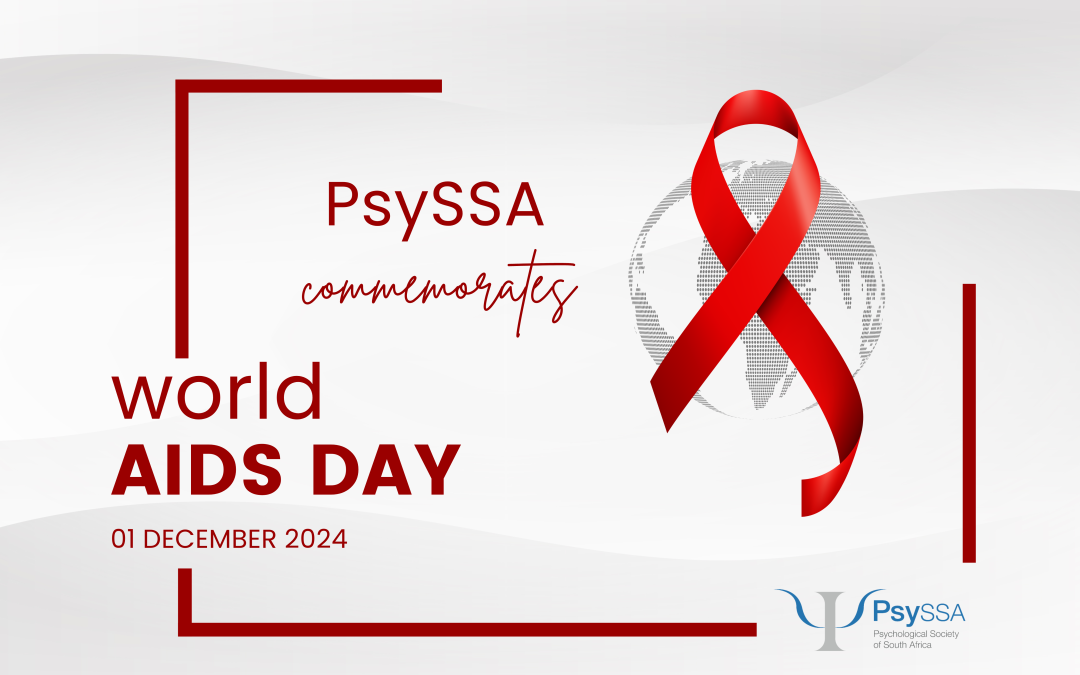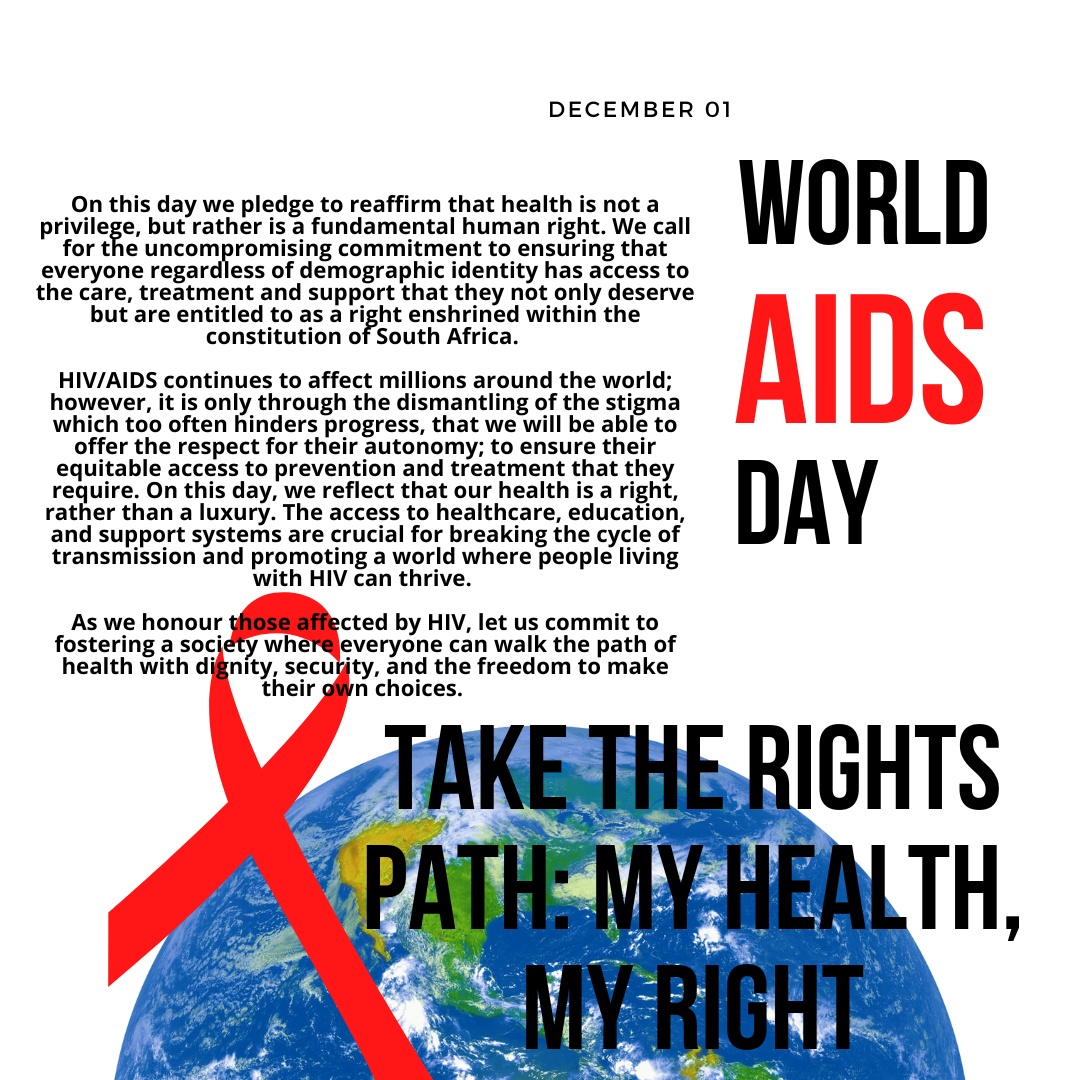
World AIDS Day – 1 December 2024
DRM SPECIAL EDITION PODCAST
IN OBSERVANCE OF WORLD AIDS DAY 2024
“Take the rights path: My health, my right!”
This special edition of the DRM podcast, hosted by Associate Professor Bronwyne Coetzee of Stellenbosch University, in partnership with the Psychological Society of South Africa’s Division for Research and Methodology, commemorates World AIDS Day 2024. The discussion emphasises this year’s theme, “Take the Rights Path: My Health, My Right!” and the critical role of human rights in ending HIV. In this podcast Prof Coetzee is joined by Prof. Stephan Rabie an Associate Professor and Chief Research Officer in the HIV Mental Health Research Unit in the Department of Psychiatry and Mental Health at the University of Cape Town, an expert in mental health and HIV. In the podcast they discuss the intersection of HIV care and mental health, discussing the necessity of integrated support systems and Prof Rabie’s groundbreaking upcoming programme of work on suicide prevention among adults living with HIV in South Africa. As we observe World AIDS Day 2024, it’s important to remember and recognise that protecting everyone’s health is intrinsically linked to protecting everyone’s rights.
Useful resources: https://www.who.int/campaigns/world-aids-day/2024
Calls to action: https://www.who.int/campaigns/world-aids-day/2024/calls-to-action
Prof Stephan Rabie in conversation with Prof Bronwynè Coetzee
Stephan Rabie is an Associate Professor and Chief Research Officer in the HIV Mental Health Research Unit in the Department of Psychiatry and Mental Health at the University of Cape Town. The majority of his research has been devoted to developing and implementing mental health interventions in diverse settings. His research focuses on the intersection of mental illness and chronic conditions, with specific focus on HIV and behavioural adherence. He has provided academic oversight and managed several interventions focusing on HIV, substance use, sexual trauma, sexual and reproductive health, and community-based healthcare. He currently holds an Emerging Global Leader Award from the Fogarty International Center, focusing on the development of a suicide prevention intervention among people with HIV in South Africa.
HPD Division

PiPS Division
On this day we pledge to reaffirm that health is not a privilege, but rather is a fundamental human right. We call for the uncompromising commitment to ensuring that everyone regardless of demographic identity has access to the care, treatment and support that they not only deserve but are entitled to as a right enshrined within the constitution of South Africa.
HIV/AIDS continues to affect millions around the world; however, it is only through the dismantling of the stigma which too often hinders progress, that we will be able to offer the respect for their autonomy; to ensure their equitable access to prevention and treatment that they require. On this day, we reflect that our health is a right, rather than a luxury. The access to healthcare, education, and support systems are crucial for breaking the cycle of transmission and promoting a world where people living with HIV can thrive.
As we honour those affected by HIV, let us commit to fostering a society where everyone can walk the path of health with dignity, security, and the freedom to make their own choices.






